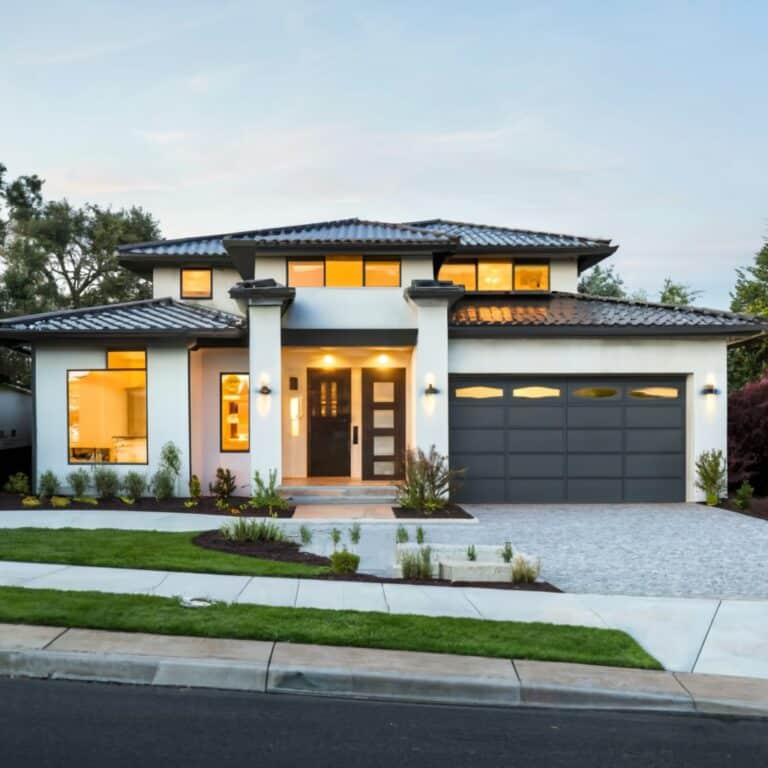In today’s digital age, safeguarding your home has evolved beyond traditional locks and alarms. Smart home security systems offer advanced features that provide enhanced protection and convenience. This comprehensive guide delves into the intricacies of these systems, helping you make informed decisions to secure your home effectively.
What Are Smart Home Security Systems?
Smart home security systems integrate internet-connected devices to monitor and manage your home’s security remotely. These systems often include components like cameras, motion detectors, door/window sensors, and smart locks, all controllable via a smartphone app or voice assistants.
Key Features of Smart Home Security Systems
- Remote Monitoring: Access live feeds and receive alerts from anywhere using your smartphone or tablet.
- Integration with Smart Devices: Seamlessly connect with other smart home devices such as thermostats, lights, and voice assistants for a unified experience.
- Professional Monitoring Services: Some systems offer 24/7 professional monitoring, ensuring prompt response to emergencies.
- Customizable Alerts: Set specific triggers for notifications, like motion detection in certain areas or door openings at unusual times.
- User-Friendly Interfaces: Intuitive apps and control panels make managing your home’s security straightforward.
Benefits of Implementing Smart Home Security
- Enhanced Protection: Real-time monitoring and instant alerts keep you informed about any suspicious activities.
- Deterrence of Criminal Activity: Visible security cameras and signs can deter potential intruders.
- Convenience: Control and monitor your home from anywhere, adjusting settings as needed.
- Energy Efficiency: Integrating with other smart devices can help manage energy consumption, such as adjusting thermostats or turning off lights remotely.
- Peace of Mind: Knowing your home is protected allows you to focus on other aspects of life without constant worry.
Top Smart Home Security Systems in 2024
1. Vivint Smart Home
Vivint offers a comprehensive suite of smart home security products, including cameras, smart locks, and environmental sensors. Their systems are professionally installed and monitored, providing a seamless user experience.
Key Features:
- Advanced smart home integration
- Professional installation and monitoring
- User-friendly mobile app
Pros:
- High-quality equipment
- Excellent customer service
Cons:
- Higher cost compared to DIY systems
Source: Vivint Smart Home Security Review
2. ADT Home Security
ADT is a well-established name in home security, offering robust systems with professional monitoring. Their smart home solutions integrate with various devices, providing comprehensive protection.
Key Features:
- Extensive monitoring network
- Integration with smart home devices
- Customizable security packages
Pros:
- Reliable service with a long-standing reputation
- Professional installation
Cons:
- Long-term contracts required
Source: ADT’s New Smart Security System
3. SimpliSafe
SimpliSafe provides flexible, DIY-installed security systems with optional professional monitoring. Their systems are known for affordability and ease of use.
Key Features:
- DIY installation
- No long-term contracts
- Optional professional monitoring
Pros:
- Cost-effective
- User-friendly setup
Cons:
- Limited smart home integration compared to competitors
Source: SimpliSafe’s New AI Live Guard
How to Choose the Right Smart Home Security System
When selecting a smart home security system, consider the following factors:
- Budget: Determine how much you’re willing to spend on equipment and monitoring services.
- Installation: Decide between professional installation or a DIY approach based on your comfort level.
- Monitoring Options: Choose between self-monitoring or professional monitoring services.
- Smart Home Compatibility: Ensure the system integrates with your existing smart home devices.
- Scalability: Opt for systems that allow you to add components as your needs evolve.
Frequently Asked Questions (FAQ)
Q1: Can I install a smart home security system myself?
A1: Yes, many systems offer DIY installation with user-friendly instructions. However, some providers recommend professional installation for optimal performance.
Q2: Do smart home security systems work without internet?
A2: While basic functions like alarms may work without internet, features like remote monitoring and notifications require an internet connection.
Q3: Are smart home security systems vulnerable to hacking?
A3: Any internet-connected device can be vulnerable. To mitigate risks, use strong, unique passwords, enable two-factor authentication, and keep your system updated.
Q4: Do I need professional monitoring?
A4: Professional monitoring offers 24/7 surveillance and can contact emergency services on

